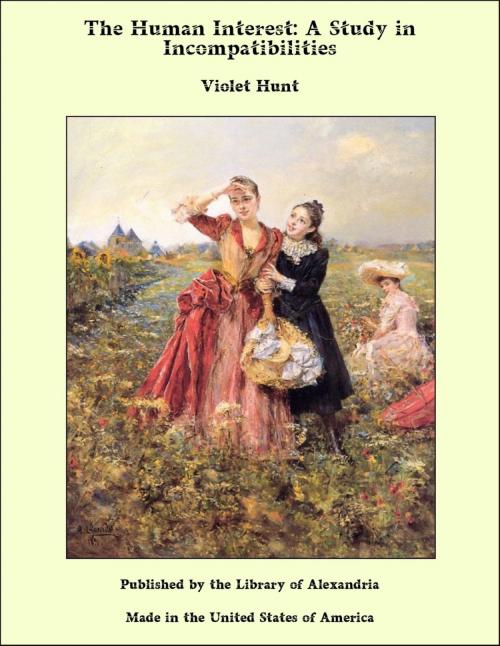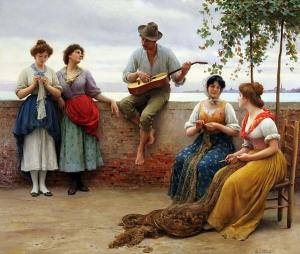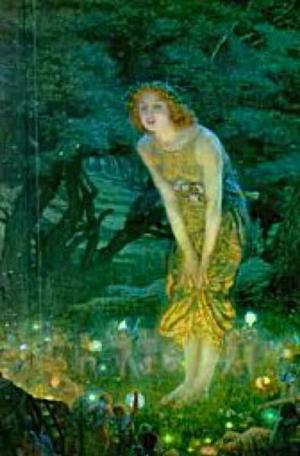The Human Interest: A Study in Incompatibilities
Nonfiction, Religion & Spirituality, New Age, History, Fiction & Literature| Author: | Violet Hunt | ISBN: | 9781465624949 |
| Publisher: | Library of Alexandria | Publication: | March 8, 2015 |
| Imprint: | Language: | English |
| Author: | Violet Hunt |
| ISBN: | 9781465624949 |
| Publisher: | Library of Alexandria |
| Publication: | March 8, 2015 |
| Imprint: | |
| Language: | English |
She was beginning to find him less obscure, for she had learned to seek for the expression of him in his art: the art by which he chose to reveal himself to those who had the will and the skill to read. Where other men spoke or wrote, he painted. She had only to look at the beautifully stained bits of paper that issued from his hand, to watch the wonderful combinations of colour—subtle, passionate, striking, tender—that were evolved by this man of few words, to see that he was no stranger to the whole gamut of human emotions, full of delightful, undisciplined moods, and mutabilities, and pleasant perversions of character. There were strength and force in certain abrupt combinations that stirred like the sound of a trumpet; there were tenderness and the fancifulness that women love in certain harmonies that moved almost to tears. She read sentiment and sweetness in the delicacy of his sunsets, and character and passion in the gloom of deep cloud-shadows, and sullen mist-wreaths lurking in clefts and hollows of the hills, and mystery in the tangled undergrowth whose complication and variety he rendered so well. There was one drawing of his that she specially cared for, and whose progress she surveyed as she might that of a beloved child of his brain and hers. “Oh, Brignal Banks are wild and fair!” says the lady in Scott’s ballad, and here they were, caught and immortalized forever on one piece of Whatman’s paper, three feet by two. There was hardly any sky in it. The leafy, heavily-berried coverts hung tossing from the cliff, streaming down to the water’s edge, that lay, in brown pools, deep and immutable, like a true man’s heart, at its base. In the immediate foreground was the broken mass of stones that formed the bed of the wayward river that had so many moods, both of grave and gay. There the painter sat, on one of these stones, with the water parted and rippling all round him, in the most precarious of positions, his drawing propped on his knee, uncomfortably, his feet nearly in the stream. The burning sun shone straight down on his head, for there was no foothold for his umbrella in the spot which he had chosen. He never spared himself, or complained of the terrible constriction of the chest, which the constrained attitude of stooping necessarily engendered. Perhaps he did not notice it in the excitement of his work. She sat under his umbrella, on the bank, and watched him. Morning after morning she sat there, as it were in a bay of opalescent colours; the horizon of her landscape bounded by the pink cliffs and overhanging belts of trees, the foreground quivering with refraction, and golden with the flowering ragwort. She was drunk, but not blind with light, and lulled continually by the hum of the bees at their task and the self-satisfied purl of the stream at her feet, she satpeacefully noting and enjoying the dreamy transitions of a painter’s day.
She was beginning to find him less obscure, for she had learned to seek for the expression of him in his art: the art by which he chose to reveal himself to those who had the will and the skill to read. Where other men spoke or wrote, he painted. She had only to look at the beautifully stained bits of paper that issued from his hand, to watch the wonderful combinations of colour—subtle, passionate, striking, tender—that were evolved by this man of few words, to see that he was no stranger to the whole gamut of human emotions, full of delightful, undisciplined moods, and mutabilities, and pleasant perversions of character. There were strength and force in certain abrupt combinations that stirred like the sound of a trumpet; there were tenderness and the fancifulness that women love in certain harmonies that moved almost to tears. She read sentiment and sweetness in the delicacy of his sunsets, and character and passion in the gloom of deep cloud-shadows, and sullen mist-wreaths lurking in clefts and hollows of the hills, and mystery in the tangled undergrowth whose complication and variety he rendered so well. There was one drawing of his that she specially cared for, and whose progress she surveyed as she might that of a beloved child of his brain and hers. “Oh, Brignal Banks are wild and fair!” says the lady in Scott’s ballad, and here they were, caught and immortalized forever on one piece of Whatman’s paper, three feet by two. There was hardly any sky in it. The leafy, heavily-berried coverts hung tossing from the cliff, streaming down to the water’s edge, that lay, in brown pools, deep and immutable, like a true man’s heart, at its base. In the immediate foreground was the broken mass of stones that formed the bed of the wayward river that had so many moods, both of grave and gay. There the painter sat, on one of these stones, with the water parted and rippling all round him, in the most precarious of positions, his drawing propped on his knee, uncomfortably, his feet nearly in the stream. The burning sun shone straight down on his head, for there was no foothold for his umbrella in the spot which he had chosen. He never spared himself, or complained of the terrible constriction of the chest, which the constrained attitude of stooping necessarily engendered. Perhaps he did not notice it in the excitement of his work. She sat under his umbrella, on the bank, and watched him. Morning after morning she sat there, as it were in a bay of opalescent colours; the horizon of her landscape bounded by the pink cliffs and overhanging belts of trees, the foreground quivering with refraction, and golden with the flowering ragwort. She was drunk, but not blind with light, and lulled continually by the hum of the bees at their task and the self-satisfied purl of the stream at her feet, she satpeacefully noting and enjoying the dreamy transitions of a painter’s day.















